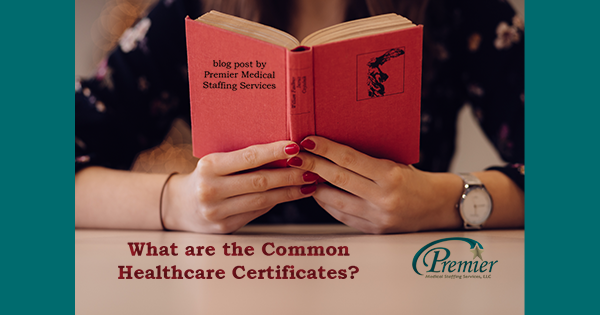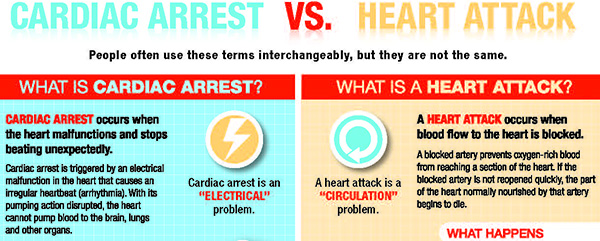Healthcare Certifications
Which Ones Are Available?
What Healthcare Certifications Do I Need?
 There are different types of healthcare certifications and knowing the differences are key to obtaining the correct one for your career. The credentialing team of Premier Medical Staffing Services breaks down the top certifications for healthcare professionals.
There are different types of healthcare certifications and knowing the differences are key to obtaining the correct one for your career. The credentialing team of Premier Medical Staffing Services breaks down the top certifications for healthcare professionals.
BLS Certification
- About: Basic Life Support training reinforces a healthcare professional’s understanding of the importance of early CPR and defibrillation including but not limited to performing the basic steps, relieving choking, and using an AED.
- Suggested For: All healthcare professionals
ACLS Certification
- About: Teaches healthcare provides how to enhance their skills when treating adult victims of cardiac arrest or other cardiopulmonary emergencies.
- Suggested For:
- LPN and Higher, but depends on unit and specialty
- ICU/CVICU units
- ER healthcare providers
PALS Certification
- About: Infants, children, and adolescents. Healthcare providers will learn about basic rhythms, arrhythmia, and even skills to assess at-risk patients.
- Suggested For: Healthcare providers working with infants, children or ER settings
NRP Certification
- About: Healthcare professionals who care for newborns at the time of delivery.
- Suggested For: Labor and Delivery Healthcare providers, NICU
How Do I Obtain My Healthcare Certifications?
There are two certification class formats recognized by the American Heart Association (AHA):
- Instructor-led
- Blended
Note: Online-only classes are not recognized by AHA
To find a course location in your area to obtain your certification, visit this AHA class training locator website >>
Are you in the Milwaukee, WI area? Consider signing up with Advanced Professional Healthcare Education. APHE holds courses at our corporate office every other Friday. Great spot for healthcare professionals in Southeastern Wisconsin!
- Visit APHE website >>
- Courses at Premier Medical Staffing Services in Milwaukee: View upcoming >>
- Contact Information: Adam Fritsch, 414-791-5018, Email Adam at APHE
Interesting Tid Bits About Healthcare Certifications
- No minimum age
- AED is included in all AHA CPR courses
- Cards within 20 days of successful completion
- E-cards
- Valid for 2 years
- Accepted in all US states
- Military Training Network is recognized
- During CPR, push on the chest at a rate of 100 to 120 compressions per minute. The beat of “Stayin’ Alive” is a perfect match for this.
AHA Chain of Survival
In 1991, the American Heart Association published a paper on the actions healthcare professionals should take to treat life-threatening emergencies, including cardiac arrest and heart attack, to help improve the chances of survival and recovery. The links in the Chain of Survival are as follows:
- Recognition of cardiac arrest and activation of the emergency response system
- Early CPR with an emphasis on chest compressions
- Rapid defibrillation
- Basic and advanced emergency medical services
- Advanced life support and post-cardiac arrest care
Difference Between Heart Attack and Cardiac Arrest
 Did you know that most heart attacks do not lead to cardiac arrest? Discover the difference between a cardiac arrest and heart attack along with what to do when something happens. View and download the infographic from AHA >>
Did you know that most heart attacks do not lead to cardiac arrest? Discover the difference between a cardiac arrest and heart attack along with what to do when something happens. View and download the infographic from AHA >>
The American Heart Association has an abundance of resources and information that can be found on their website.